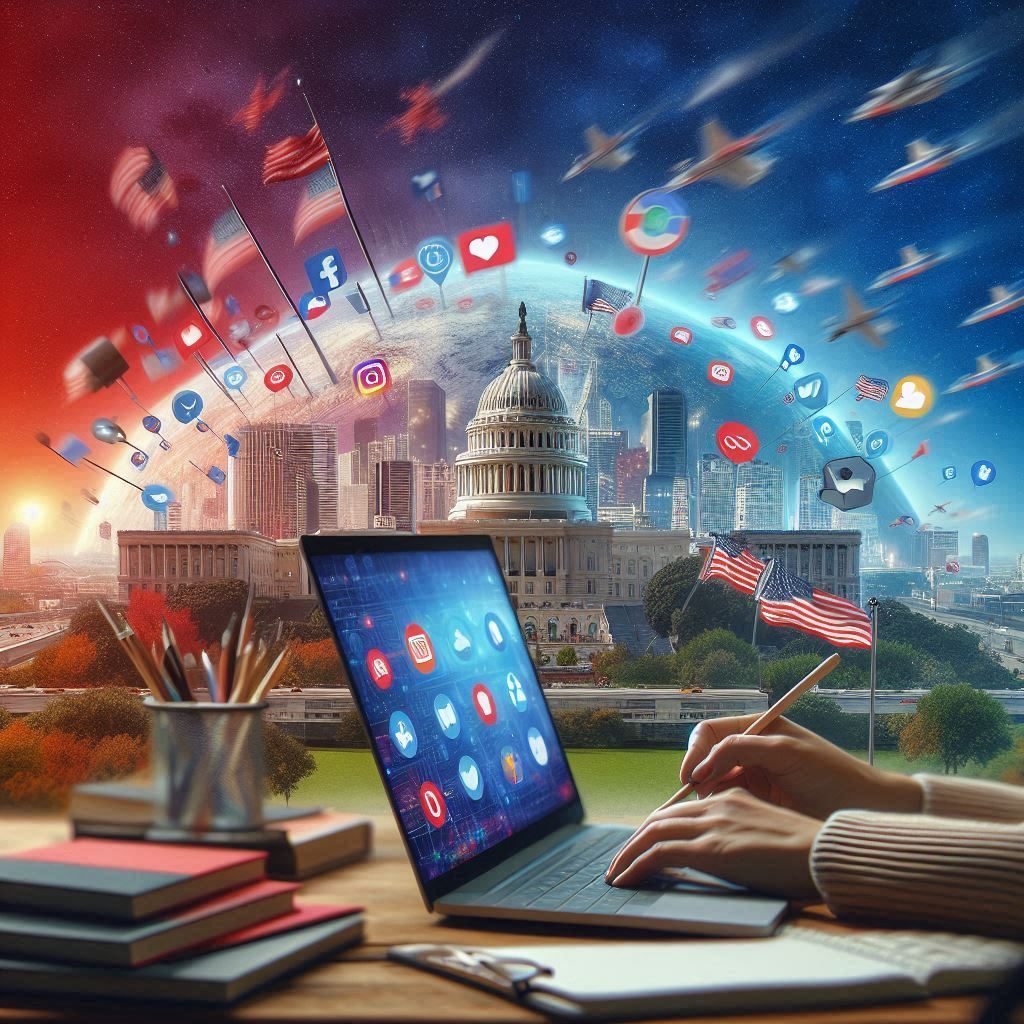The Social Media Impact on Politics: A Double-Edged Sword for Democracy
Social media has revolutionized nearly every aspect of modern life, from interacting with friends to consuming information. One of the most profound areas of impact is politics. But how exactly does social media influence political landscapes? Well, buckle up because we’re about to dive into the role of social media in shaping political discourse, behaviour, and even outcomes.
The Evolution of Social Media
From Chatrooms to Global Platforms
Once upon a time, the internet was limited to chatrooms and niche communities. Fast-forward a few decades, and now we have platforms like Facebook, Twitter, and Instagram that connect billions of people worldwide. These platforms aren’t just for sharing memes or cat videos—they’ve evolved into powerful tools that can sway public opinion and mobilize political movements.
A New Era of Communication
Before social media, politicians communicated primarily through traditional media—TV, newspapers, and radio. Now, with a few taps on their smartphones, they can instantly reach millions. This direct line of communication has reshaped political campaigning and the relationship between politicians and the public.
Social Media as a Political Tool
Politicians Leveraging Platforms
Politicians have quickly grasped the power of social media. Take former U.S. President Obama’s 2008 campaign as an example—it set the gold standard for digital campaigning. Fast-forward to today and nearly every politician has a social media presence. They use platforms to share their policies and create a more personal connection with their followers. Social media allows them to bypass traditional media outlets and communicate directly with voters.
Campaigns in the Digital Age
The nature of political campaigns has drastically changed. No longer confined to TV ads or door-to-door canvassing, social media allows campaigns to micro-target specific audiences with tailored messages. Whether through Facebook ads or Instagram stories, campaigns can engage voters where they are most active.
The Power of Viral Movements
Hashtags that Shaped Political Discourse
Remember the Black Lives Matter movement or the MeToo movement? These hashtags were more than just online trends—they catalysed massive political and social changes. Viral hashtags help unify voices around specific causes, transforming what might have been a fringe issue into a mainstream conversation.
Grassroots Activism Goes Digital
Thanks to social media, grassroots movements can now gain momentum at an unprecedented scale. Organizing protests, fundraisers, or even petition drives has never been easier. Social media allows ordinary people to become political activists without leaving their homes, giving rise to movements that may have struggled to gain attention in a pre-digital era.
Fake News and Misinformation
How Fake News Spreads on Social Media
While social media provides a platform for positive change, it also amplifies misinformation. Fake news stories can go viral within minutes, causing confusion and shaping false public perceptions. Have you ever shared an article without checking its source? Yeah, you’re not alone. Social media makes it easy for fake news to spread like wildfire.
Impact on Public Perception
Misinformation can erode trust in institutions and even sway elections. People who can’t distinguish fact from fiction may make voting decisions based on lies. The consequences? Well, look at the controversies surrounding the 2016 U.S. Presidential election.
The Role of Algorithms
Echo Chambers and Polarization
Algorithms are the secret sauce behind social media platforms. They determine what content we see based on our behaviour. The downside? They often trap us in echo chambers—environments where we only encounter information that aligns with our existing beliefs. This can increase polarization, making compromise and understanding harder to achieve.
Algorithms Favor Controversy
Controversial content is more likely to get clicks, shares, and reactions, so algorithms often prioritize it. This has a dark side: it pushes divisive and extreme content to the forefront, further deepening societal divides.
Social Media’s Influence on Voter Behavior
Microtargeting in Political Campaigns
Ever wonder why you see specific political ads on your feed? That’s microtargeting at work. Political campaigns now have access to your data—likes, shares, and even search history. This allows them to craft messages tailored specifically for you, influencing how you view candidates or issues.
Data Analytics and Personalization
Data is king in the world of social media. Political analysts use vast amounts of data to understand voter behaviour better. By personalizing political messaging, campaigns can create highly targeted strategies that appeal to different voter demographics, maximizing their reach and effectiveness.
The Dark Side: Censorship and Manipulation
Government Control of Social Media
Governments actively censor social media to control political discourse in some parts of the world. Whether blocking certain platforms or manipulating trending topics, authoritarian regimes understand the power of social media and seek to regulate it tightly.
Manipulation by External Actors
Social media isn’t just a domestic tool—it’s international. External actors, such as foreign governments or organizations, have been known to use social media platforms to interfere in other countries’ political processes. This manipulation can range from spreading misinformation to hacking campaigns.
Positive Effects of Social Media on Politics
Enhanced Civic Engagement
On the bright side, social media has given citizens a greater voice in the political process. It encourages public debate, fosters civic engagement, and makes it easier for people to participate in political discussions. You can tweet at your representative, join a Facebook group dedicated to a cause, or use Instagram to raise awareness about issues that matter to you.
Greater Accessibility to Political Information
In the past, you had to wait for the nightly news or read the newspaper to stay informed. Now, political information is just a click away. Social media democratizes access to news, allowing people from all walks of life to stay updated on current events and political developments.
Conclusion.
In summary, social media has had a monumental impact on politics. It has changed how politicians campaign, movements gain momentum, and voters consume information. While it comes with challenges—misinformation, polarization, and manipulation—it has opened new doors for political engagement and awareness. Whether you see social media as a blessing or a curse, one thing is clear: it’s here to stay, and its influence on politics is undeniable.
FAQs
1. How does social media affect voter behaviour?
Social media allows for microtargeting, where political campaigns tailor their messages to specific voters based on data analytics. This can influence voters’ decisions and shape their opinions on candidates or issues.
2. Can social media spread misinformation during elections?
Yes, misinformation spreads quickly on social media, which can mislead voters and impact their decisions, potentially influencing election outcomes.
3. How do hashtags play a role in political activism?
Hashtags like #BlackLivesMatter or #MeToo unify voices around political or social causes, often turning grassroots movements into mainstream political discussions.
4. What are the downsides of social media in politics?
Some negatives include the spreading of fake news, increased polarization due to echo chambers, and manipulation by external actors or governments.
5. Can social media enhance civic engagement?
Absolutely! Social media facilitates access to political discussions and encourages participation in the political process through various forms of engagement, such as discussions, protests, and online petitions.


